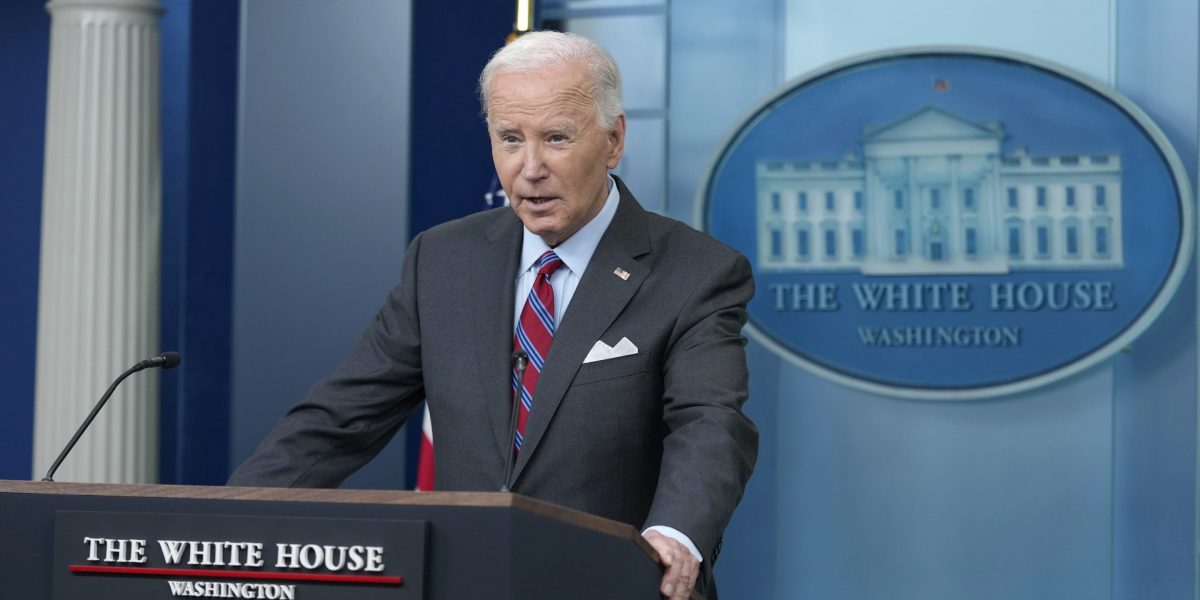President Joe Biden had terse words for Prime Minister Benjamin Netanyahu on Friday, and said he didn’t know whether the Israeli leader was holding up a peace deal in order to influence the outcome of the 2024 U.S. presidential election.
“No administration has helped Israel more than I have,” Biden said. “None. None, none. And I think Bibi should remember that. And whether he’s trying to influence the election, I don’t know but I’m not counting on that.”
Biden, in a rare appearance in the White House press briefing room, was responding to comments made by one of his allies, Sen. Chris Murphy, D-Conn., who said on CNN this week that he was concerned Netanyahu had little interest in a peace deal in part because of U.S. politics.
The two leaders have long managed a complicated relationship, but they’re running out of space to maneuver as their views on the Gaza war diverge and their political futures hang in the balance.
The president has long pushed for a cease-fire agreement and he and his aides have indicated several times over the past few months that such an agreement was close. But it never seems to materialize, and in some cases, Netanyahu has publicly resisted the prospect while U.S. and Israeli officials continue to talk in private about eking out a deal.
Meanwhile, Israel has pressed forward on two fronts, pursuing a ground incursion into Lebanon against Hezbollah that left eight Israeli soldiers dead and conducting strikes in Gaza that killed dozens, including children. And the nation has vowed to retaliate for Iran’s ballistic missile attack this week, as the region braced for further escalation.
Biden said there had been no decision yet on what type of response there would be toward Iran, though there has been talk about Israel striking Iran’s oil fields — and “I think if I were in their shoes, I’d be thinking about other alternatives than striking oil fields.”
Biden pushed back against the idea that he was seeking a meeting with Netanyahu to discuss the response to Iran. He isn’t, he said.
“I’m assuming when they make a decision on how they’re going to respond, we will then have a discussion,” he said.
Netanyahu has grown increasingly resistant to Biden’s public charm offensives and private pleading, prompting the president’s more assertive pushback. And Biden has in turn publicly held up delivery of heavy bombs to Israel and increasingly voiced concerns over an all-out war in the Middle East.
“I don’t believe there’s going to be an all-out war,” Biden said Thursday evening. “I think we can avoid it. But there’s a lot to do yet. A lot to do yet.”
Biden has remained consistent in his support for Israel’s defense and security and in the aftermath of the deadly Oct. 7 Hamas attacks in Israel. Since then, with few exceptions, Biden has supported ongoing and enhanced U.S. arms transfers to Israel while cautioning the Israelis to be careful in their responses to avoid civilian casualties.
Biden has also ordered the U.S. military to step up its profile in the region to protect Israel from attacks by Hamas, Hezbollah, the Iranian-backed Houthi rebels in Yemen and Iran itself. In April, and again earlier this week, the U.S. was a leading player in shooting down missiles fired by Iran into Israel.

